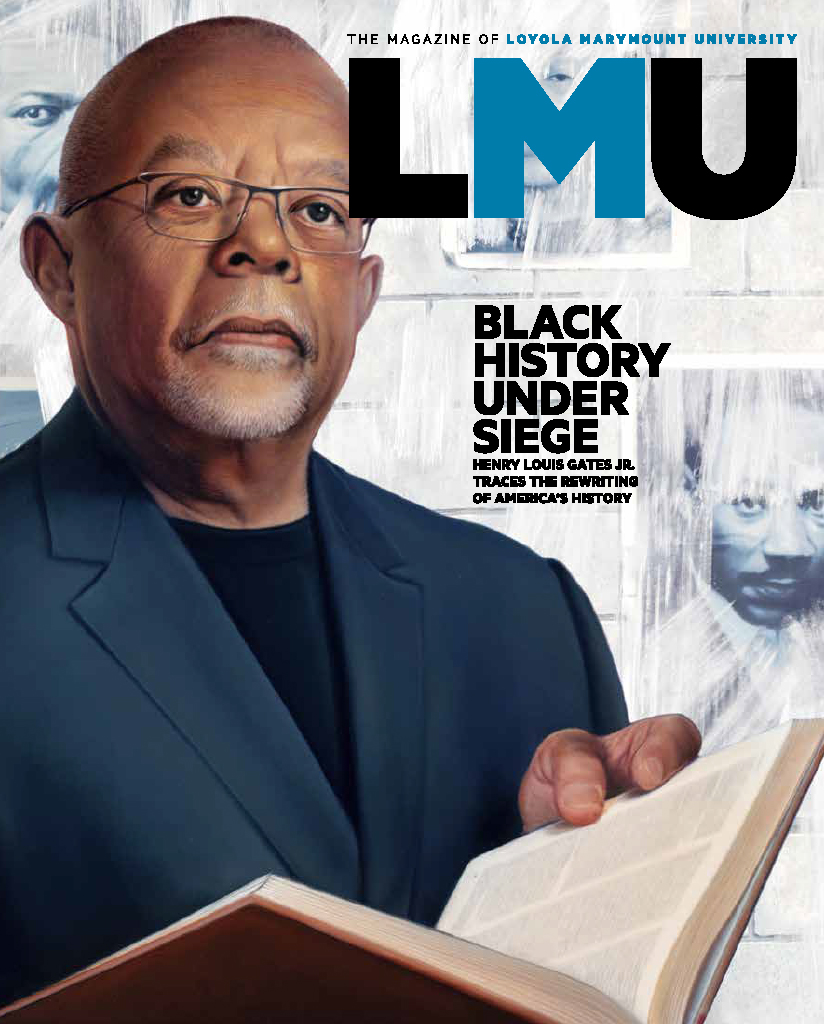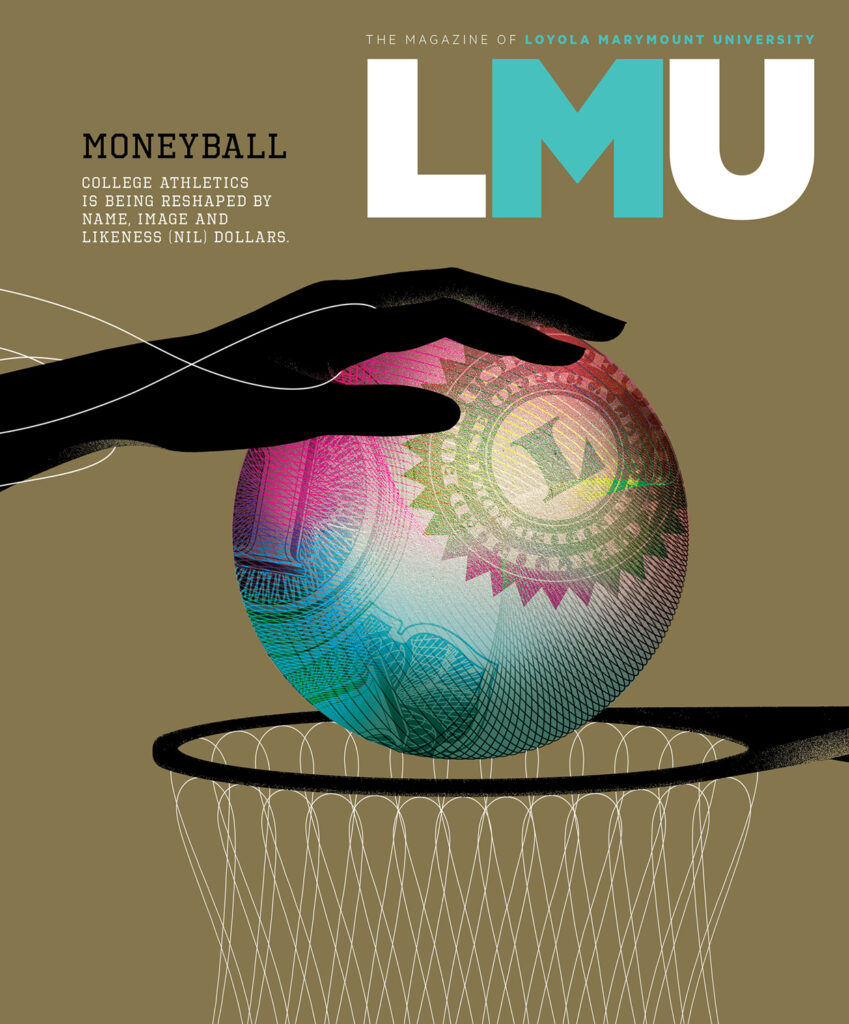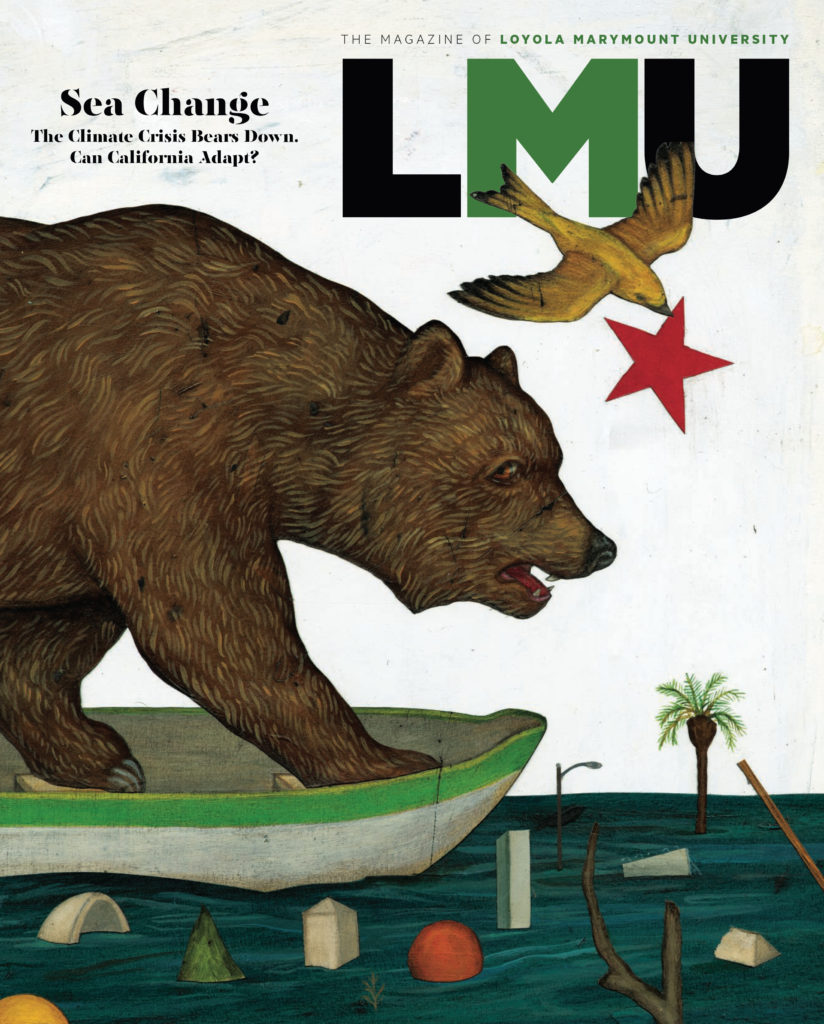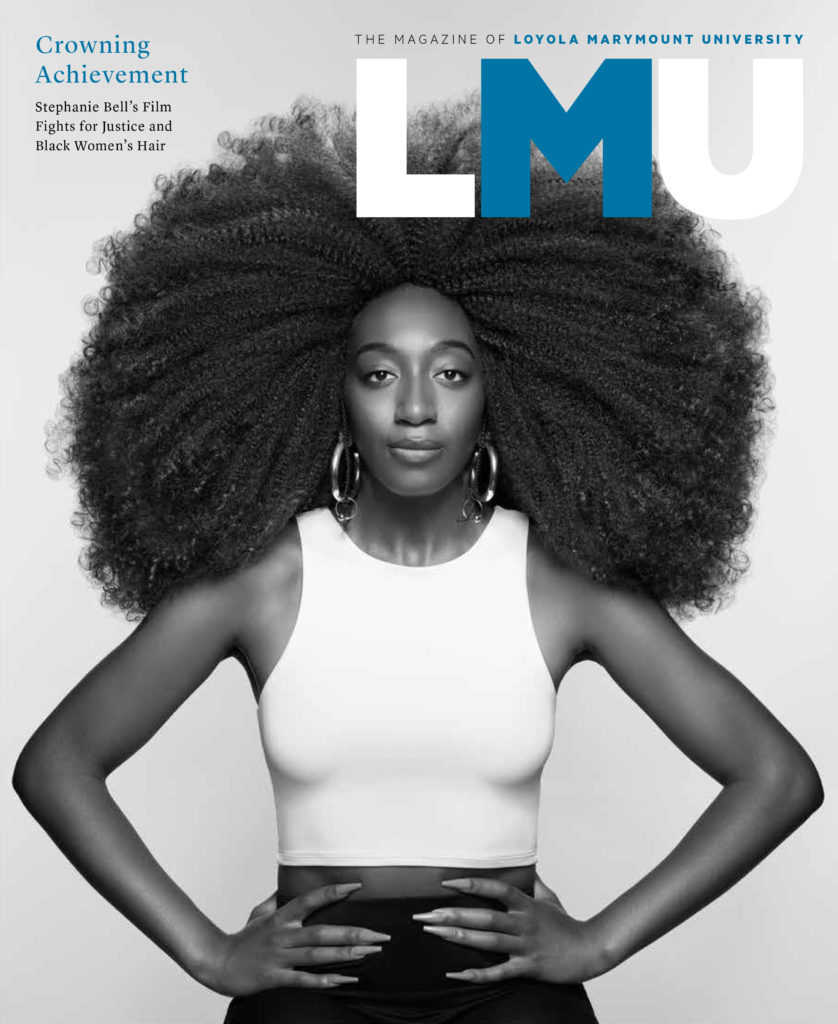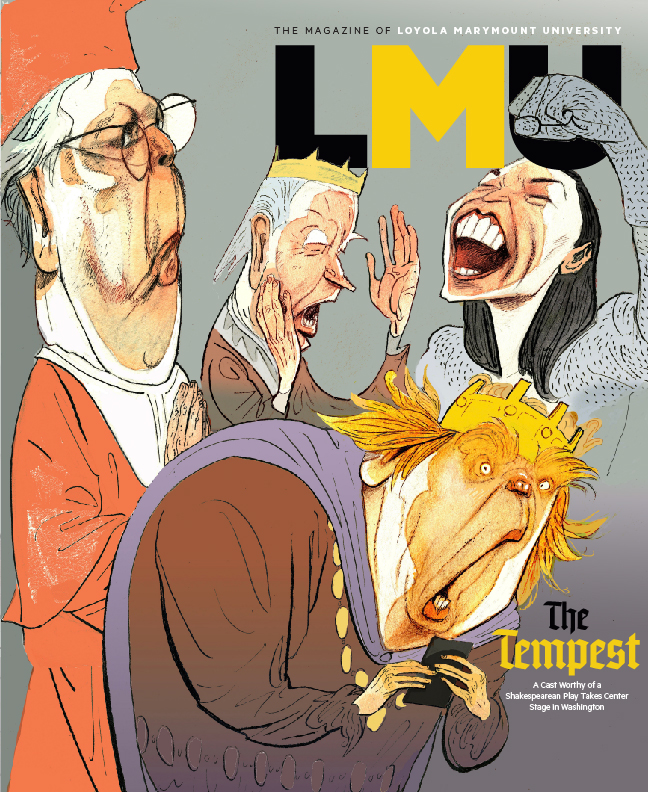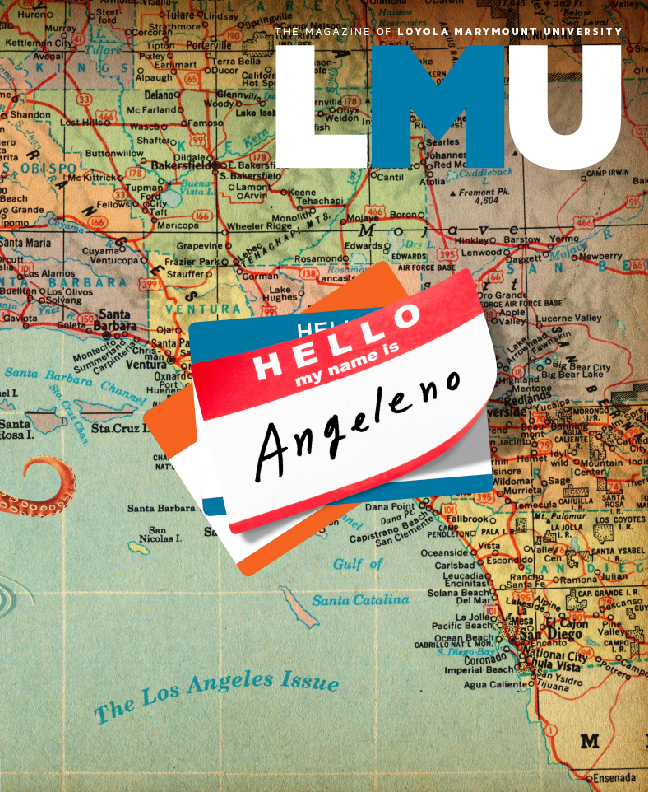Summer 2016
Fair Game: A Conversation With Billy Bean ’86
In July 2014, a year after prohibiting baseball players from harassing and discriminating against other players on the basis of sexual orientation, Major League Baseball named Billy Bean ’86 its ambassador for inclusion. Bean’s role is to fight prejudice with talk, meeting with players, coaches, general managers and owners to share his story of playing big league baseball while protecting a secret. We spoke with Bean about his work with MLB and his career. Bean was interviewed by Editor Joseph Wakelee-Lynch.
Kathleen Kim on Trafficking
People are being trafficked to the cities, towns, businesses and farms every day. Kathleen Kim, professor of law at Loyola Law School and an expert on immigration and human trafficking, discusses human trafficking in the United States. She was interviewed by Editor Joseph Wakelee-Lynch.
Economic Costs and Invasive Species
Sean D’Evelyn, assistant professor of economics, studies efficient invasive species management and on environmental public goods. Here he talks about economics and ecosystems.
Fair Game: A Conversation With Billy Bean ’86
In July 2014, a year after prohibiting baseball players from harassing and discriminating against other players on the basis of sexual orientation, Major League Baseball named Billy Bean ’86 its ambassador for inclusion. Bean’s role is to fight prejudice with talk, meeting with players, coaches, general managers and owners to share his story of playing big league baseball while protecting a secret. We spoke with Bean about his work with MLB and his career. Bean was interviewed by Editor Joseph Wakelee-Lynch.
Malcolm Dicks ’94
Fire Capt. Malcolm Dicks is in charge of Los Angeles County Fire Station 125, in Calabasas, California. A paramedic as well as a firefighter, Dicks didn’t wait until after graduation to decide on a career. “I knew this was my...
Storing the Gear
Rock climber Carson Szarek ’16 stocks a roomful of climbing gear for trips to Joshua Tree and the Sierras.
Imagined L.A.: Brian Doyle on the City’s Past and Future
Brian Doyle says that of all literary forms the essay is “closest to the human voice at play; the most naked unadorned form, with none of the filters and often stilted self-indulgent vibe of the other forms; the essay is you and your friend having a pint and telling tales with glee and tears.” Doyle has never set foot in Los Angeles. But his song of this city, an original essay, describes a place we recognize.
Jumping Time
What are we supposed to do in life and how do we figure out how to do it? Los Angeles writer Lynell George ’84 has been talking with L.A. artists about the fault line between seeing the path of one’s life and staying on it. She tells us what she’s seen and learned.
Prayer Time
The Muslim house of prayer closest to LMU is the King Fahad Mosque — about 5 miles away, 20 minutes by car. Drive north on Lincoln, turn right on W. Washington until you get to the intersection with Huron Ave.
Against All Odds
Mary Kelly ’84 and Robert Watson ’84, M.A. ’89 met on the LMU campus as students and have been together ever since.
Muslim U.S.A.
During the 2016 U.S. election process, fear of Muslims became a thread used to tie terrorists and extremists to suspicion of Muslim Americans. Here at LMU, Muslims have been participating in and contributing to the university’s culture for some time. We asked some to describe their faith, lives and experience in the United States. If we fear what we do not know, let this be an introduction.—The Editor
My L.A.: Venice Canals
Down a little-known avenue named Dell that runs between Washington and Venice Boulevards, you can actually drive through the Venice Canals. They used to encompass most of Venice Beach, but now just a few precious blocks remain where unearthly architectural masterpieces...
Becoming Nonna
Writer Amy Orr Morris-Young ’84 wonders whether it’s our DNA or the community surrounding us that shapes us more.
Submit your take to LMU Magazine.
The Duke: Don Klosterman ’52
On January 12, 2016, National Football League owners approved the return of the Rams to Los Angeles. It was a day that the late Don Klosterman ’52, who helped shape the history of pro football in L.A., would have celebrated. Former L.A. Times sportswriter Chris Dufresne tells the Duke’s story.
Accounting for the Debt
Jim Hindman ’82, right, created the Alan H. Falcon Endowed Scholarship in Accounting to honor Alan Falcon, left, his former professor and mentor. Lauren Jyo, a junior accounting major, center, is this year’s scholarship recipient.
The Road to Omaha
LMU baseball stormed the 1986 College World Series and set a program standard for success. Here are some scenes to remember.
Election Surprises
Voters and candidates make surprising decisions that only begin to make sense when we understand that our choices are often rooted in psychological biases. And beyond the decisions that political actors make, random events often occur and help determine whom we elect. The most predictable part of our elections is that the unpredictable will happen.
Rugby’s Rituals
There’s a cup on the line every season when LMU and Occidental College face off in rugby — the Doherty Cup. “The cup doesn’t go to the winning team, or the guy who won match or who played the best,” says Ray Thompson ’77, LMU rugby coach and former Lion rugger.


